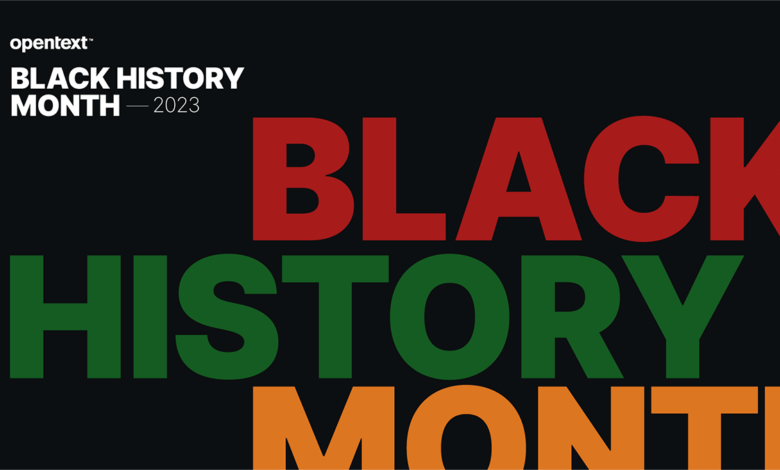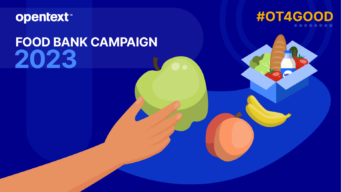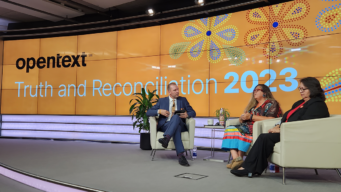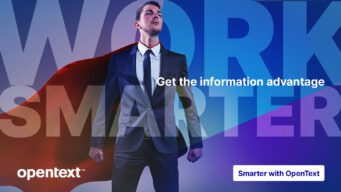At OpenText, equity, diversity, and inclusion are fundamental to our company’s values and culture. One way we support and grow this culture is through a broad range of ED&I employee networks, which are spaces where employees from under-represented minority groups and their allies can connect and support one another personally and professionally.
This February, our Black Employee Empowerment (B.E.E) and enABLE employee networks led several learning opportunities for our employees to celebrate and honor Black History Month. The Association for the Study of African American Life and History announced this year’s theme of Black Resistance, defined as not cracking under pressure, but remaining strong and steadfast regardless of the circumstances surrounding someone, which fosters resilience. This resiliency of resistance led to many positive movements in the field of equity, diversity and inclusion which have paved the way for cultural changes in the present and for the future.
Throughout the month, OpenText employees joined live virtual events, including an empowering talk by Dr. Ruha Benjamin, accomplished author and professor of African American studies at Princeton University. Many employees also took the opportunity to volunteer in activities ranging from recording audiobooks to help educate and inspire young girls, to creating digital assets to help students study core subjects like math and science.
One of the true highlights of the month was our employee panel, where colleagues discussed resiliency and how to break down barriers in the workplace. Moderated by OpenTexters Bethany Saint Clair, Director of ED&I programs, and Eric Beulah, Worldwide Services Operations Lead, our employee panel featured Anthony Lloyd, VP, Technology Services, Renée McKenzie, EVP, Chief Information Officer and B.E.E Executive Sponsor, Otto Eyok, Director Professional Services, and Naomi Oglesby, Senior Legal Counsel. This candid discussion spanned a number of topics, including thoughtful advice on overcoming challenges like code-switching and confronting our own biases.
Here are some key takeaways from the discussion:
Q: Black Resistance — which is about remaining strong and steadfast regardless of the circumstances — has played a major role in the career advancement of individuals from Black communities. Tell us about your career journey, and how your resiliency helped you handle any resistance or bias in the workplace.
Anthony: I experienced institutional types of bias and racism early on in my career, and I can say that it’s gotten better over time. But I also experienced racism as recently as five years ago, at another company. I was in a meeting where I needed to assign work to a team member, and he outwardly said he would not be doing any work that was assigned to him by a Black person. There is much less overt racism like this today, but systemic racism persists. It’s so important to have an open and honest conversation and be able to share these experiences so that we can address the issues.
Naomi: Black Resistance highlights Black Americans that have fought against racial discrimination in their everyday lives, including in the workplace. It is essential to build communities and spaces like the B.E.E group where Black people and their allies can be in a space that supports them. This helps create mentors and leaders to help cultivate mentees for ongoing support. Now that I’m in a position to provide mentoring, I make an active effort to support and elevate the next generation as best as I can.
Q: It’s one thing to hire under-represented people, but it’s another for those individuals to feel like they belong. How do you ensure the Black people within your department feel seen, included, and that their contributions are valued?
Renée: I am still learning how to do this better every day. It starts with not shying away from conversations about race and racial bias. It’s okay to be uncomfortable and not know exactly what to say, but lead with real value in the conversations you’re having. During the hiring process, we ensure a diverse group leads the conversations during interviews, to help eliminate racial and gender bias as much as possible.
You have to crush the idea that diversity is somehow a threat. It’s proven that having diverse teams has significant business value, but beyond that, it improves growth, inclusion, ideation, and innovation. We as leaders need to make sure people understand the power of diversity.
Renée McKenzie, OpenText EVP, Chief Information Officer
Q: As a leader, how do you disrupt prejudicial behavior in the workplace, or address any subtle pushback for bringing in under-represented people?
Anthony: For me, it’s important that everyone on my team knows their role is critical to our success. I don’t want to focus on color or gender, but rather on how each one of us brings success to the organization when they’re doing their best. Everyone matters on my team, and I make sure they know that.
Otto: For me, I question myself every day and push myself to learn from different people of all backgrounds. It’s continuous work to keep pushing back and to disrupt prejudiced behaviour.
Renée: You have to crush the idea that diversity is somehow a threat. As a leadership team, we’re on the lookout for denial statements, people who are disengaged in the conversation, who skip ED&I training. We have to be on top of it from day one in dealing with people who don’t fit the culture at OpenText. We also spend time speaking about the value of having diverse teams. It’s proven that having a diverse team has significant business value, but beyond that, it improves human engagement of growth, inclusion, ideation, and innovation. We as leaders need to make sure people understand the power of diversity.
Q: Let’s talk about code-switching. For years, many visible minorities — particularly younger, college-educated people of color — felt the need to “code-switch”, which is about changing their behaviors around their white colleagues to fit in with their environment. Have you found it necessary to code-switch in your career journey?
Naomi: Definitely. In my first career out of college, I was a professional TV journalist. I felt the need to change how I dressed, how I spoke, and especially how I wore my hair. My naturally curly hair today was not accepted back then, and I was afraid if I wore my hair the way it is now, I would be fired. I literally burnt my hair out trying to make it straight every day for work. And one day, I had enough. It is critical to show up in this world, including the workplace, as your most authentic self.
Anthony: Of course, I’ve felt the need to code-switch too. Early in my career there were even fewer Black people in a similar position as me. I felt the need to look the part and act the part with my colleagues to be accepted. This has changed substantially over the years, and we continue to see awareness and education that needs to occur in corporate America to accept people no matter their characteristics. You see me today as my true authentic self. I am comfortable in being who I am, where I am. You have to crush the idea that diversity is somehow a threat. It’s proven that having diverse teams has significant business value, but beyond that, it improves growth, inclusion, ideation, and innovation. We as leaders need to make sure people understand the power of diversity.
Q: How do you keep yourself in check so that your unconscious biases are not kicking in when you are working with people from different backgrounds?
Otto: I make sure I listen first. Always lead with empathy and curiosity, instead of acting with preconceived notions based on stereotypes.
Renée: I start by reflecting on my own experiences and how I’ve felt when I’ve been treated with prejudice. Early in my career, I was a single mom, and the only woman in a room full of men, so I try to bring forward what biases mean for all people. I constantly challenge myself about my own biases by asking: Am I reacting based on a stereotype I somehow believe? Am I leading with data or with emotion? It’s important to start with self-reflection and I ask my team to do the same. We have to engage with people who are different from us to learn how to reflect on biases. A great resource is reading. Read books from Black authors, read about Black culture, open your mind to break down your own barriers and biases. Lastly, it’s okay to admit you were misinformed, but you have to then change your behavior to show others that you are growing, and that change can make a difference.
Q: How have you helped increase employee diversity within your business unit at OpenText?
Renée: We have been clear that we are looking for diverse job candidates, and we use a panel interview style to ensure our hiring process is welcoming of all backgrounds. ED&I training is so important, and everyone on our team needs to take it. We bring in speakers to talk about different components of diversity. Most importantly, always ask for help. You don’t need to have all the answers and you can make mistakes, but as long as you reflect and acknowledge the imperfection, we can build a better tomorrow.
Q: What conversations are you having with the leadership within your department to ensure they understand and uphold this cause?
Otto: Whenever possible, I make sure my team works with people from different cultures or backgrounds to help them expand their minds and to learn from them.
Naomi: I’m in the legal department, and my team truly understands how to uphold the cause. At OpenText, we have a strict code of business conduct, and equity, diversity and inclusion policies that I encourage all employees to read, and also report any potential issues. It really shows our company’s position and how the leaders are here to support you.
Anthony: I try to reinforce that the more perspectives and backgrounds we have, the better our output. Having a narrow focus is very limiting. It doesn’t matter if someone’s opinion is different than yours. You want differences of opinion so you can build and validate a consensus.
Renée: We have conversations about anything and everything possible. We want to be better. We don’t want to be just a number or a metric on a slide — it’s so much more than that. We all take accountability no matter your position at the company, and we’re part of the solution. We need to create this community element to make sure we’re each doing the work and doing our part.
At OpenText, we continuously strive to become better allies and create equal opportunities for our colleagues. Though we are not perfect, we have made great gains and will keep pushing forward as proud OpenTexters.
This Q&A panel discussion was edited for length and clarity.



